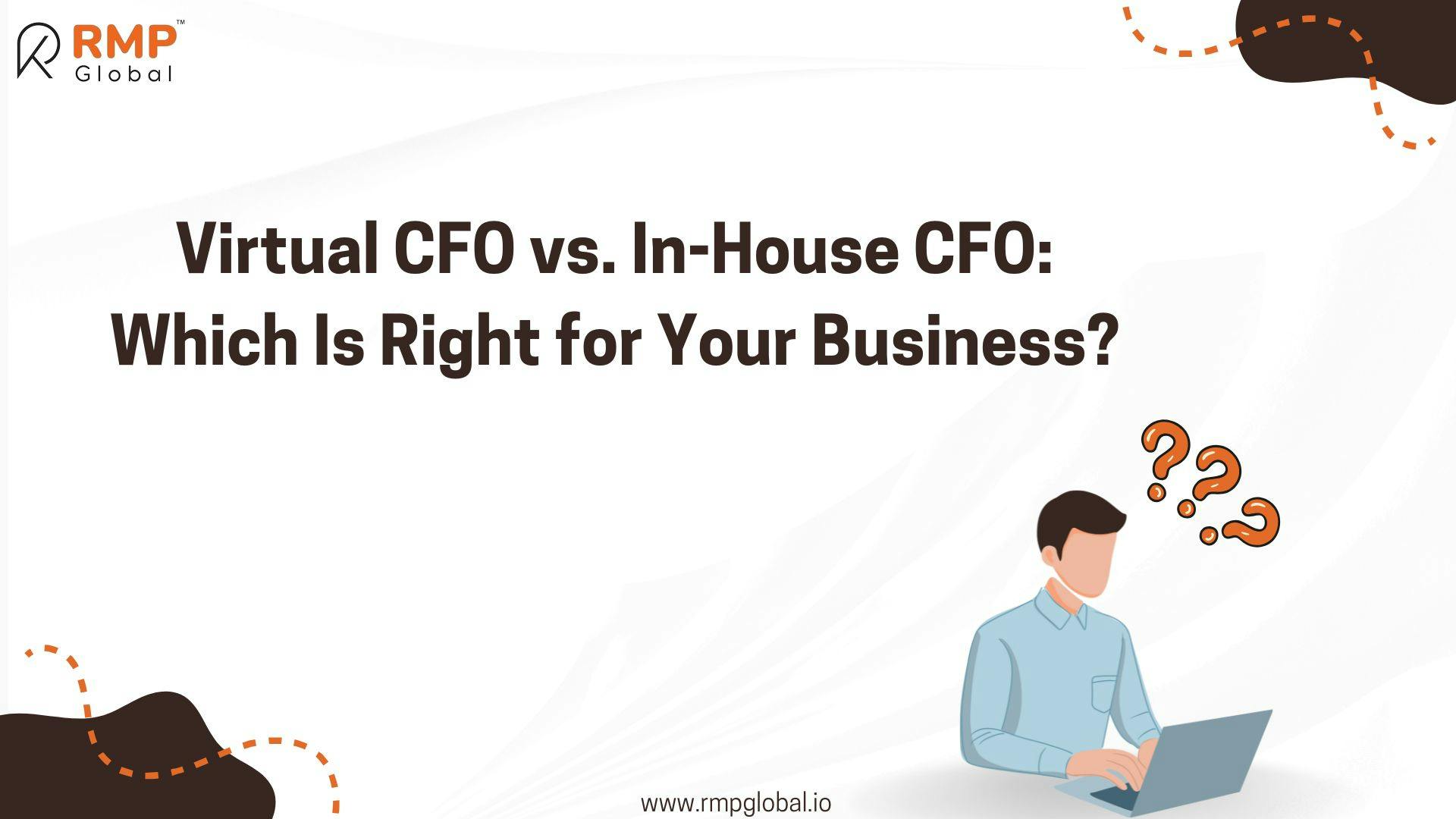
Share
Every business, regardless of its size, needs strong financial leadership to navigate challenges, optimize growth, and maintain financial stability. But when it comes to choosing a Chief Financial Officer (CFO), the decision isn’t as straightforward. Should you hire an in-house CFO, or would a Virtual CFO be a better fit?
This blog explores the key differences between a Virtual CFO and an in-house CFO, helping you determine which option aligns best with your business needs.
What Is an In-House CFO?
An in-house CFO is a full-time employee who:
- Works directly within your company.
- Oversees all aspects of financial management, including budgeting, compliance, and strategy.
- Provides a consistent presence in your organization.
They are deeply integrated into the company culture and operations, making them ideal for businesses with complex financial structures and large-scale needs.
Virtual CFO vs. In-House CFO: Which Is Right for Your Business?
Every business, regardless of its size, needs strong financial leadership to navigate challenges, optimize growth, and maintain financial stability. But when it comes to choosing a Chief Financial Officer (CFO), the decision isn’t as straightforward. Should you hire an in-house CFO, or would a Virtual CFO be a better fit?
What Is an In-House CFO?
An in-house CFO is a full-time employee who:
- Works directly within your company.
- Oversees all aspects of financial management, including budgeting, compliance, and strategy.
- Provides a consistent presence in your organization.
They are deeply integrated into the company culture and operations, making them ideal for businesses with complex financial structures and large-scale needs.
What Is a Virtual CFO?
A Virtual CFO offers financial expertise remotely and typically:
- Provides part-time or project-based services.
- Delivers high-level financial strategy without being physically present.
- Utilizes modern technology like cloud-based accounting and virtual meetings.
This flexible model suits businesses looking for expert guidance without the cost or commitment of a full-time hire.
Key Differences Between a Virtual CFO and an In-House CFO
FeatureVirtual CFOIn-House CFOCostAffordable, with pay-as-you-go flexibility.High salary, benefits, and overhead costs.FlexibilityOffers part-time or project-based services.Full-time commitment required.ExpertiseAccess to diverse industry experiences.Specialized knowledge of your industry.AvailabilityRemote, available as needed.Always present during business hours.ScalabilityIdeal for growing or small businesses.Suitable for large or complex enterprises.TechnologyRelies on advanced financial tools.May require in-house software investments.
When to Choose a Virtual CFO
A Virtual CFO might be the right choice if:
- You are a small or medium business with limited resources.
- You require strategic guidance but not full-time financial oversight.
- You need help navigating specific challenges like fundraising or scaling.
- You want to adopt modern financial technology without significant investments.
When to Choose an In-House CFO
n in-house CFO is ideal if:
- Your business has complex financial operations that require constant oversight.
- You can afford the costs of a full-time executive.
- You prefer having financial leadership on-site and available at all times.
- Your organization is large, with multiple departments requiring close coordination.
Conclusion:
Choosing between a Virtual CFO and an in-house CFO depends on your business’s size, budget, and financial complexity. For many small and medium businesses, a Virtual CFO provides the perfect blend of expertise, flexibility, and cost savings. However, as businesses grow and their financial needs become more intricate, the comprehensive presence of an in-house CFO might become essential.
This article is only a knowledge-sharing initiative and is based on the Relevant Provisions as applicable and as per the information existing at the time of the preparation. In no event, RMP Global or the Author or any other persons be liable for any direct and indirect result from this Article or any inadvertent omission of the provisions, update, etc if any.
